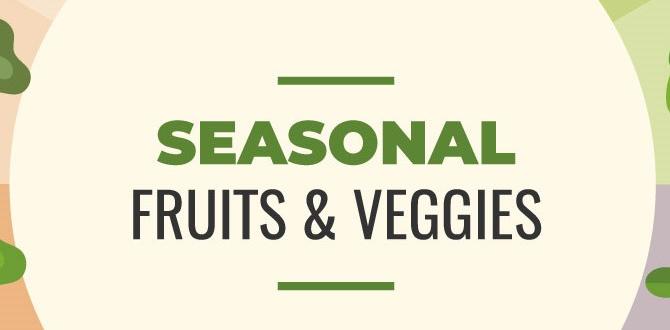Puppy Homemade Food: Best & Easy!
Bringing a new puppy into your home is an incredibly rewarding experience. Amidst the training, playtime, and endless cute moments, one crucial decision you’ll make is about their nutrition. While commercial puppy food is widely available and formulated for growth, many pet parents are exploring the benefits and ease of preparing homemade dog food for puppies. This approach offers a personalized diet, often with more control over ingredients, which can be particularly beneficial for puppies with sensitivities or for owners who simply want to be more involved in their furry friend’s well-being.
The notion of homemade puppy food might seem daunting, conjuring images of complex recipes and time-consuming preparation. However, with a little knowledge and a focus on simplicity, creating nutritious and delicious meals for your young canine companion can be surprisingly easy and incredibly rewarding. The key lies in understanding the fundamental nutritional needs of a growing puppy and choosing wholesome ingredients that provide the right balance of protein, carbohydrates, fats, vitamins, and minerals.
Understanding Puppy Nutritional Needs
Puppies are in a critical phase of development, requiring a diet that supports rapid growth, strong bones, a healthy immune system, and a shiny coat. Their nutritional requirements are significantly different from adult dogs. They need more calories per pound of body weight, higher levels of protein for tissue development, and specific ratios of calcium and phosphorus for skeletal growth.
Homemade dog food for puppies can be tailored to meet these demands, but it requires careful consideration of each nutrient group.
Protein: This is the building block for muscle, organs, and tissue. Good sources for puppies include lean meats like chicken, turkey, lean beef, lamb, and fish. It should form a significant portion of their diet.
Carbohydrates: These provide energy. Easily digestible carbohydrates like cooked rice (white or brown), sweet potatoes, quinoa, and oats are excellent choices. Avoid feeding raw grains, as they can be difficult to digest.
Fats: Essential for energy, brain development, and nutrient absorption. Healthy fats can be found in ingredients like skinless chicken, fish oil, and small amounts of vegetable oils like flaxseed or coconut oil.
Vitamins and Minerals: Crucial for overall health, immune function, and bone development. While some vitamins and minerals are present in whole foods, supplementing might be necessary to ensure a complete and balanced diet. Calcium and phosphorus are particularly vital for growing bones, and getting the right ratio is paramount. A veterinary nutritionist can guide you on appropriate supplementation.
The Ease of Preparing Homemade Dog Food for Puppies
The “easy” aspect of homemade puppy food comes from focusing on straightforward recipes and utilizing accessible ingredients. You don’t need to be a gourmet chef to create a healthy meal. The process often involves:
1. Cooking a Protein Source: This is the foundation. Boiling or baking lean meats until thoroughly cooked is simple. For example, boiling chicken breast and then shredding it is a very easy method.
2. Preparing a Carbohydrate Component: Cooking rice or mashing sweet potatoes are quick tasks.
3. Adding Vegetables: Steaming or boiling soft vegetables like carrots, peas, green beans, or spinach until tender is straightforward. These add fiber, vitamins, and antioxidants.
4. Incorporating Healthy Fats: A drizzle of fish oil or a small amount of added healthy fat during preparation provides essential fatty acids.
The magic happens when you combine these cooked components in appropriate ratios. For instance, a simple recipe could be cooked shredded chicken breast, boiled white rice, and steamed peas.
Key Considerations for Homemade Puppy Diets
While the idea of homemade dog food for puppies is appealing for its freshness and control, it’s crucial to approach it with knowledge and caution.
Balance is Paramount: The biggest challenge with homemade diets is achieving nutritional completeness. An unbalanced diet can lead to serious health problems, including developmental orthopedic diseases (like rickets or hip dysplasia), deficiencies in essential vitamins and minerals, and overloads of others. It is highly recommended to consult with a veterinary nutritionist when transitioning your puppy to a homemade diet. They can help you create a specific recipe tailored to your puppy’s age, breed, size, and activity level, and advise on necessary supplements.
Food Safety: Just like for humans, food preparation for your puppy must be hygienic. Wash hands and surfaces thoroughly, cook meats to a safe internal temperature to kill harmful bacteria, and store prepared food properly in the refrigerator.
Portion Control: Puppies have small stomachs but high energy needs. Your veterinary nutritionist or vet can help you determine the correct portion size for each meal, which will vary with age and growth.
Gradual Transition: When switching your puppy to a homemade diet, do so gradually over a week to ten days. Mix increasing amounts of the new food with decreasing amounts of their old food to avoid digestive upset.
Simple Recipe Ideas for Your Puppy
Here’s a very basic example of a homemade meal for puppies that can be adapted. Always confirm proportions and suitability with your vet or a veterinary nutritionist.
Simple Chicken & Rice Bowl:
Ingredients:
Lean boneless, skinless chicken breast (cooked and diced or shredded)
Plain cooked white or brown rice
Steamed or boiled mixed vegetables (carrots, green beans, peas – ensure small enough pieces)
A small amount of fish oil or flaxseed oil
Preparation: Combine cooked chicken, rice, and vegetables. Add a small amount of oil for healthy fats.
* Note: This is a simplified example. Essential supplements (like calcium, vitamins, minerals) are likely to be necessary and will be determined by a professional.
The “Best & Easy” Proposition
The “best and easy” proposition for homemade puppy food truly lies in its potential for personalization and the sense of involvement it brings to pet ownership. While it requires a commitment to learning and potentially working with a professional to ensure balance, the result is a diet that you know intimately. You can control the quality of ingredients, avoid common allergens or fillers found in some commercial foods, and directly contribute to your puppy’s optimal health during their most critical developmental stage. The “easy” part comes from mastering a few simple cooking techniques and sticking to a routine, which quickly becomes a natural part of caring for your growing companion. Remember, consulting with your veterinarian is always the first and most crucial step before making any significant changes to your puppy’s diet.
Meet Elyse Colburn, the devoted canine companion and storyteller behind the enchanting world of “Tales, Tails, and Adventures Unleashed.” A passionate dog enthusiast with a heart full of paw prints, Elyse Colburn shares heartwarming tales and insightful adventures, celebrating the joy, loyalty, and endless antics that make every dog a true hero. Join Elyse Colburn on this tail-wagging journey, where every post is a love letter to our four-legged friends.







